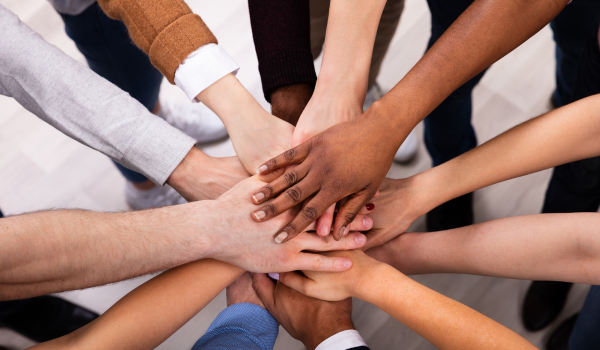Expert-recommended ways to deepen your DEIB strategy
- Jenna Blumenfeld
- Nov 9, 2023
- 3 min read
Updated: Nov 10, 2023

Over the past several years, most large companies have taken important steps to improve their organization’s diversity, equity, inclusion, and belonging (DEIB) initiatives. In 2021 — shortly after the death of George Floyd shined a spotlight on persistent racial injustices in America — DEIB positions grew.
According to the job platform Indeed, between September 2019 and September 2020, DEIB job postings rose 56.3% — from 140 jobs per million to 219. Such impressive figures indicate several truths:
DEIB initiatives are no longer a nice-to-have. They’re essential to ensure that organizations of a certain size are diverse, equitable, and inclusive.
Companies have invested heavily in DEIB.
DEIB as a profession has expanded. But in what ways can DEIB initiatives meaningfully impact the way employees feel about their company, colleagues, and wider community? And what types of DEIB programming move the dial on building an equitable culture?
To understand effective diversity and inclusion planning, we interviewed DEIB strategist Lily Zheng (they/them), author of DEI Deconstructed: Your No-Nonsense Guide to Doing the Work and Doing It Right (Berrett-Koehler Publishers, 2022).
This conversation explores how to promote intersectionality through social impact, strengthen your DEIB strategy, foster a culture of belonging, and create programming beyond “food, fun, and flags.”
This interview has been lightly edited for brevity.
Visit.org: Many companies organize DEIB programming around cultural calendar observances. What are your general thoughts about this singular approach?
Lily Zheng: Event programming is a valuable component in any larger social impact strategy. But organizations and their leaders frequently conflate the two as being the same thing.
Social impact occurs through policies, processes, culture, products, services, external partnerships, and people. Planning programming around cultural observances can help build a more inclusive and welcoming culture for all and strengthen employee communities, but it's far from a replacement for all the other means by which social impact occurs.
This is an incomplete and reductionist approach to social impact that is often criticized as ‘food, fun, and flags’ by DEI practitioners. It rarely creates lasting change.
Is there a negative connotation if companies don’t plan programming around significant cultural observances, such as Black History Month, Pride Month, Hispanic Heritage Month, and more?
What matters is that organizations work to empower their workforce, create an inclusive culture, and meet employee needs. If employees don't have the capacity or desire to be organizing or celebrating cultural observances at work, feel included and valued as part of the organizational culture, and have their needs met, then this kind of programming may not be necessary.
It's not a question of whether cultural event programming is a ‘good’ or a ‘bad’ practice. So long as leaders are mindful of what their workforce needs, they'll be able to choose the option that best meets those needs.
In what ways can DEIB leaders achieve their goals beyond celebrating cultural observances?
Many corporations focus their efforts in areas that they determine have higher impact, such as leadership workshops and changing standard practices or processes. They can also reserve resources such as time, budget, and headcount to support employee volunteer event programming.
How can social impact professionals incorporate the U.N. Sustainable Development Goals into their DEIB initiatives?
If an organization wants to incorporate the U.N. SDGs into its accountability framework, that's a great practice — and it's this commitment that will single-handedly decide how social impact professionals incorporate the U.N. SDGs into their programming.
How is a cultural celebration supposed to meaningfully and effectively contribute toward the focus U.N. SDGs unless the organization itself is being held accountable to this?
If the organization is holding itself to these goals, social impact professionals can ensure their efforts are aligned with the SDGs their organization is prioritizing. If not, the goal of social impact professionals should be to secure this broader commitment from organizational leadership first and foremost.
Learn how Visit.org can help your company achieve effective DEIB. Schedule a call today!
Comments